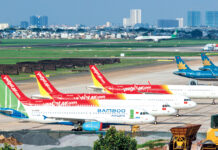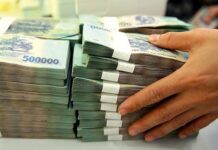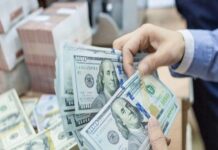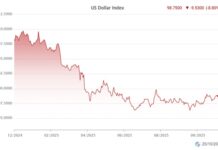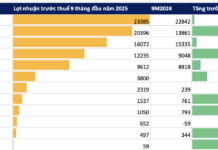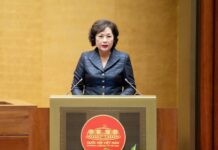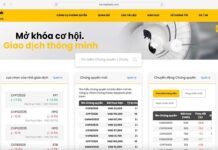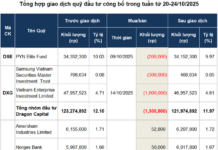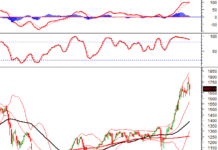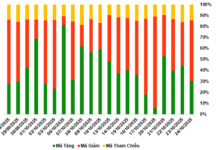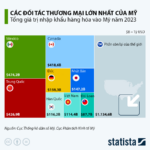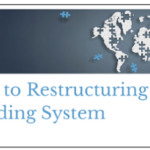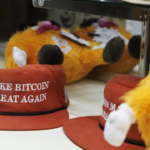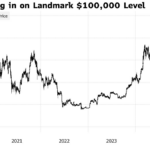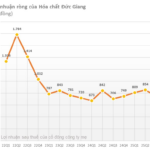Even before President Yoon Suk Yeol’s sudden declaration of martial law, which was later rescinded, South Korea’s KOSPI stock index and the won had been among the world’s worst-performing assets, partly due to concerns that South Korea would be one of the countries most affected by President-elect Donald Trump’s trade policies.
This is coupled with worries about sluggish economic growth, a factor that prompted the Bank of Korea (BOK) to unexpectedly cut interest rates for the second time in over a month last week.

According to Bloomberg, the upcoming political turmoil in South Korea is expected to have a negative impact on financial markets.
All this is happening as Trump’s second term is about to begin. Trump’s return to the White House with a protectionist stance raises concerns about the future of South Korea’s semiconductor and battery industries. Additionally, tariff risks pose a significant challenge for a major exporting country like South Korea.
Since the beginning of the year, KOSPI has fallen by 7%, while the won has depreciated by about 9% against the USD.
“At this point, instead of rushing to catch the bottom, we need to take a cautious approach,” said Park Jinho, securities investment director at NH-Amundi Asset Management Co. Park said he is awaiting the outcome of discussions on the stock market stabilization fund and the BOK’s next policy easing move. “If the government comes up with such supportive measures, the market will be safer,” Park commented.
Right after Yoon’s unexpected declaration of martial law, South Korea’s top financial regulators held an emergency meeting and affirmed that they would deploy “unlimited” measures to support the market. The group also stated that they are prepared to deploy a 10 trillion won ($7 billion) stock market stabilization fund if needed. Meanwhile, Governor Rhee Chang-yong said the BOK may not cut interest rates further.
The won has recovered to 1,413.5 won per USD, making up for a sharp drop to its weakest level since 2009 on December 4, following the declaration of martial law. A survey of Bloomberg strategists predicts the won will trade around 1,410 won per USD at the end of the first quarter of 2025.
Even before the recent political turmoil, investors were already anxious about South Korea’s market due to sluggish economic growth and concerns about Trump’s tariff policies. For four consecutive months, foreign capital has flowed out of the South Korean stock market, totaling more than $14 billion, leading Citigroup, Goldman Sachs, and JPMorgan Chase to downgrade the country’s stocks last month.

“I’ve started to reduce my exposure to South Korea within my Asian portfolio. The recent political event is detrimental to the growth of profits and the outlook for South Korean companies. Even though South Korean stocks are cheap, I’d rather invest in other countries with better profit prospects,” said Joohee An, investment director at Mirae Asset Global Investments Co. (Hong Kong)
In the midst of economic uncertainty this year, the South Korean bond market has been a bright spot. South Korean bonds are among the best-performing in Asia, attracting $42 billion in net inflows after being included in the FTSE bond index. The BOK’s consecutive rate cuts have also boosted the country’s bond market. According to Bloomberg data, won-denominated bonds have yielded about 8.2% year-to-date, outperforming the 2% average of emerging market bonds.
“However, the bond market is unlikely to maintain its upward trend until the end of the year. Even though it is relatively immune to political events, the South Korean bond market is not completely decoupled from the overall context,” said Kiyong Seong, a macro strategist at Societe Generale SA (Hong Kong). He predicted that inflows into South Korean bonds would decrease next year.
Trump’s Personnel Appointment Reduces Risk for Vietnam’s Market
Michael Kokalari, Director of Macroeconomic Analysis and Market Research at VinaCapital, believes that President Donald Trump’s recent appointments reduce risks for investors in Vietnam.
The Future of Vietnamese Tourism: Mr. Johnathan Hạnh Nguyễn Predicts a Boom in Chinese Visitors by 2025, with Vietnam Airlines Potentially Reaching 10 Million Passengers
IPPG, the largest shareholder at Cam Ranh International Terminal, has signed a Memorandum of Understanding with China Duty Free, China’s leading duty-free operator, to rapidly expand its duty-free offerings in anticipation of a significant surge in passenger traffic starting in 2025.

